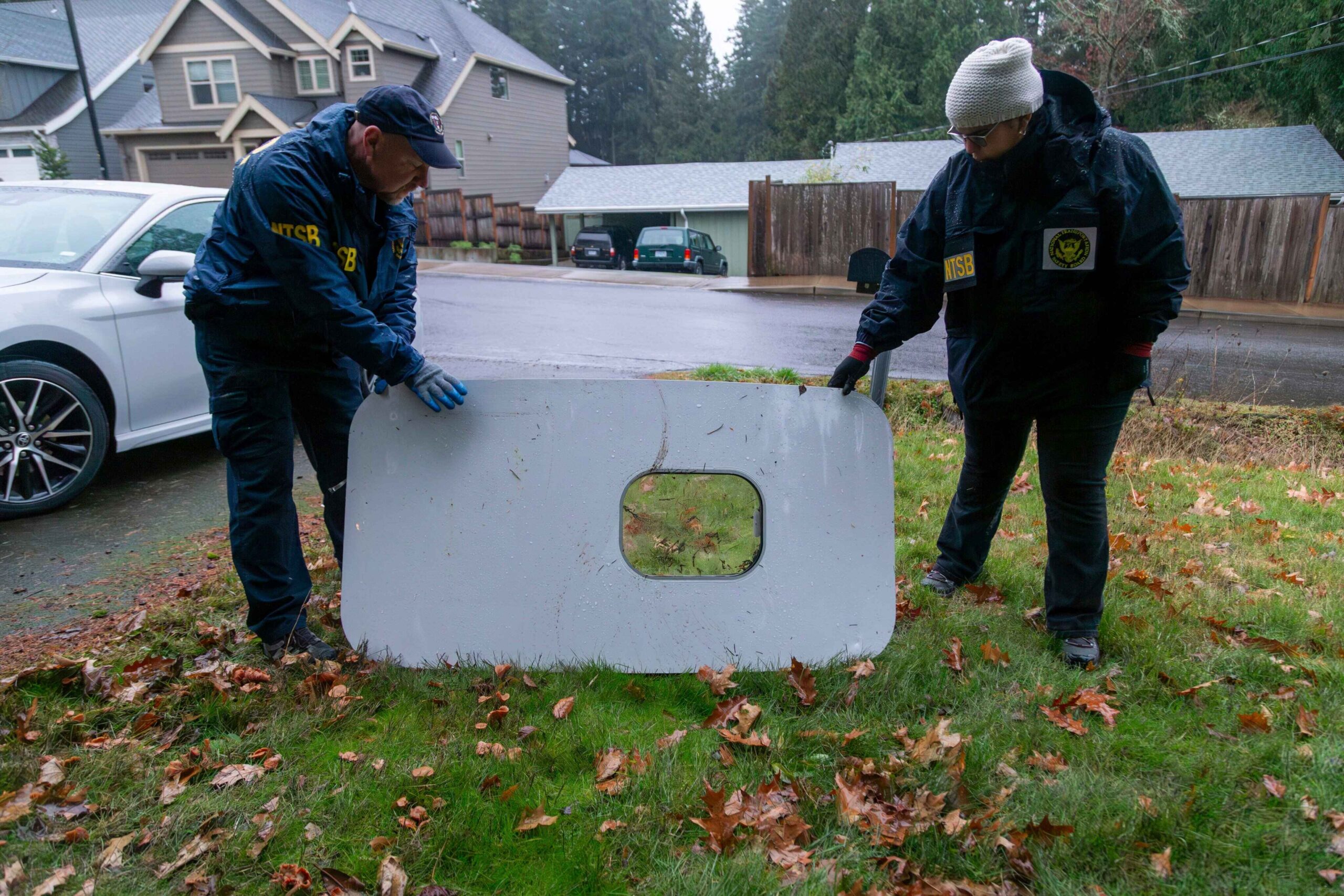Boeing shares cratered this week after a near-catastrophic failure on an Alaska Airlines jetliner on Friday was traced back to a faulty door plug manufactured by the company. Following this incident, more than 100 Boeing 737 Max 9 jets were grounded for inspection, leading to the discovery of dozens of additional defective parts—and causing many to question the results of Boeing’s diversity, equity, and inclusion (DEI) programs.
On Friday night, an Alaska Airlines flight out of Portland, Oregon suffered a blowout seven minutes after takeoff, shearing off a portion of the fuselage and resulting in a rapid loss in cabin pressure. None of the six crewmembers nor the 171 passengers were seriously injured, but several people reportedly sustained windburns as the plane made an emergency landing.
Subsequent reports from Alaska Airlines indicated that the issue with this specific plane was already known to maintenance crews—but rather than being pulled from the rotation, the plane was simply limited to flights over land.
Learn the benefits of becoming a Valuetainment Member and subscribe today!
The investigation into the events that caused the failure is further complicated by the fact that the plane’s black box cockpit recorder seems to have erased all in-flight audio following the landing. The National Transportation Safety Board (NTSB) reports that black boxes only record two hours of audio at a time before automatically overwriting the stored data.

The missing 60-pound section of the plane, which consisted of a door plug that covered an unused emergency exit, was recovered in a backyard in a Portland suburb on Sunday and submitted to the NTSB for inspection. As a precaution, the Federal Aviation Administration (FAA) grounded approximately 171 Boeing 373 Max 9 jets operated by US airlines, requesting that similar parts be checked for problems.
Alaska and United Airlines, which have the largest fleets of Boeing 737 Max 9s (65 and 79 respectively) found “loose hardware” on additional door plugs, announcing that “no aircraft will return to service” until formal reviews are conducted to ensure safety.
In light of this discovery, the NTSB announced on Monday that the inspection will be expanded to include other 737 Max models as well.
Related: Southwest Airlines “Customer of Size” Policy Gives Free Seats to Overweight Travelers
As a result, shares in Boeing tumbled by nearly 8 percent on Monday, then slipped an additional 2.3 percent on Tuesday. The stock price for Spirit Aerosystems, the subsidiary that manufactures the door plugs in question, has fallen by more than 11 percent this week.
A statement from Boeing reaffirmed that safety is the company’s “top priority,” adding: “we deeply regret the impact this event has had on our customers and their passengers.”
However, even as the company pledges to prioritize customer safety, many are calling out the company’s commitment to diversity, equity, and inclusion principles. Given Boeing’s goal of promoting underrepresented demographics rather than focusing on merit, critics are warning that the crisis of subpar manufacturing in the aviation industry is only going to worsen over time.
Connor Walcott is a staff writer covering politics, culture, and business for Valuetainment.com. Follow Connor on X (Twitter).


















Add comment